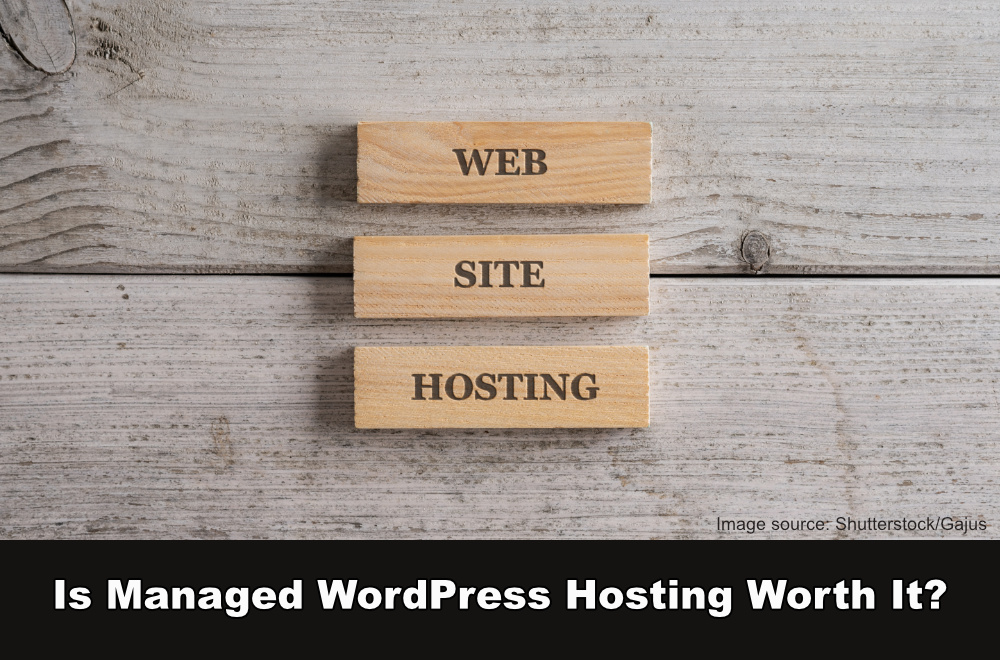- January 12, 2023
- by Zac Geekie
- Web Hosting
- 0 Comments
Setting out to find a web hosting service for your WordPress site can oftentimes turn into a lengthy and bewildering quest.
There are literally thousands of companies to choose from, and the more reviews you read, the less decided you may become.
The first thing you should do to narrow down your search is to determine which type of hosting you are mainly interested in. For a new website, the most common options are shared hosting, WordPress hosting, and “managed” WordPress hosting.
The latter has become quite a popular choice lately and it’s the most expensive of the three.
The difference between these three types of hosting can either be a thin line or a huge gap; it drastically varies from one provider to another.
Let’s just focus on the latter type, i.e. managed WordPress hosting, and try to make the case for why it might just be worth shelling out the extra bucks.
The following are five major reasons that make managed WP hosting a worthy consideration.
Reason 1: Better Performance
While shared hosting may work well for simple sites that receive a small number of visitors, managed WP hosting offers improved performance for large, high-traffic and/or complex sites.
Here’s a brief list of the most significant performance advantages you can expect:
- More computing resources: Dynamic WordPress sites (e.g. e-commerce sites) require more memory (RAM) and CPU power to run fast and smoothly. Managed WordPress hosting usually has more permissive limits on CPU and RAM usage.
- Higher I/O rate: The per-account limit on input/output (I/O) speed is a major factor that can affect the speed of the site. Many managed WP hosts use NVMe SSD drives, which allows them to allocate a higher I/O limit for each user account at a reasonable cost.
- More database connections: The maximum number of concurrent database connections is another key metric that can impact the performance of your site. This number is usually higher with managed WordPress hosting as opposed to shared hosting.
- Optimized server stack: Since the servers in this case are only used to host WordPress sites, providers often employ a custom server software stack that is specifically designed and optimized for this content management system.
- Ready-to-go caching tool: Server-side caching is one of the most effective ways to improve the speed and performance of a website. Many WordPress site owners install third-party cache plugins that may not always work as expected. With managed WP, you should get a properly configured caching tool with a simple management interface out of the box.
Reason 2: Tighter Security
Security is a big concern for WordPress site owners, in particular those running an e-commerce or a small business site.
Because the system doesn’t come with a default security tool, you’ll have to rely on either a third-party plugin or your hosting company to provide the necessary security features.
In case of managed WordPress hosting, the following are three of the main security enhancements that usually come at no additional cost.
- Automatic updates: The first and foremost thing you should do to secure your WordPress site is to keep the system (core) and all installed themes and plugins up to date. Instead of installing updates manually, automatic updates are more convenient and efficient.
- Server firewall: A WordPress-optimized firewall can serve as the first line of defense for your site. It analyzes all incoming traffic and blocks certain suspicious and malicious requests before they even reach your website.
- Malware scanning: Since WordPress is a major target for many types of malware attacks, a real-time malware detection and removal tool is of utmost importance. This is a standard feature in most managed WP plans, especially those aimed at e-commerce sites.
- Automatic backups: Keeping daily backups of your website helps dramatically minimize the damage done by an attack, system failure, or any other unforeseen incident affecting your site’s files and/or database. This is one of the most crucial features you get with managed WordPress solutions.
Reason 3: Staging Environment
At some point after launching your website, you will likely need to install a new plugin, try a new theme, or make certain changes to the current theme or functionality of your site.
Instead of applying changes directly to your live site, which may potentially lead to unexpected or unwanted results, it would be nice if you could first test those changes on an offline replica of your site. And that’s basically what a staging environment is used for.
There are plenty of free and premium plugins that enable you to create a staging site for testing purposes. Managed WordPress hosting saves you the effort of finding and installing such a tool on your own, because it typically includes a custom staging tool from the get-go.
Reason 4: Experienced Support
The support staff of a fully managed WordPress hosting platform is usually more technically experienced in comparison to support agents hired (often outsourced) by shared hosting companies.
You should expect fast and thorough answers/solutions from agents who are knowledgeable about the technicalities of WordPress.
What the support team can and can’t help you with will vary from one provider to another. But generally, you get more in-depth support that may cover issues like installing and configuring third-party themes or plugins.
Reason 5: Customized Plans
A useful advantage of some business-oriented managed WordPress hosting services is the option to create a customized plan for your specific needs.
Depending on your site’s size and traffic, some providers will help you create a tailored plan offering the required server resources and features.
If you have a large or a high-traffic website, a custom plan can be more cost-effective as opposed to purchasing a ready-made plan where you could be wasting money on resources and/or features you don’t need.
Takeaway
The aim of managed WordPress hosting is to provide better performance, security and convenience. You can save time and energy with this type of hosting as the provider takes care of most technical aspects; from initial installation or migration to routine maintenance tasks.
While experienced users may prefer the more affordable unmanaged hosting options (shared or VPS), those with limited technical skills or a busy schedule may find a managed WP solution more favorable and time-saving.
Managed WordPress vs. Shared Hosting vs. VPS
If you are still not sure which hosting option is right for you, the following side-by-side comparison table may help you make up your mind.
| Managed WordPress | Shared Hosting | VPS | |
|---|---|---|---|
| Performance | High | Low-medium | High |
| Security | WordPress-tailored | General | Custom |
| WP installation | Automatic | Manual or automatic | Manual |
| Site migration | Full assistance | Limited assistance | Not included |
| Staging | Ready-to-go | Optional | Not included |
| Backups | Free and automatic | Varies per host | DIY |
| Ease of use | Simple interface | Simple interface | Advanced |
| Support | More experienced | Basic support | Varies per service |
| Cost | Medium-high | Low-medium | Medium-high |



